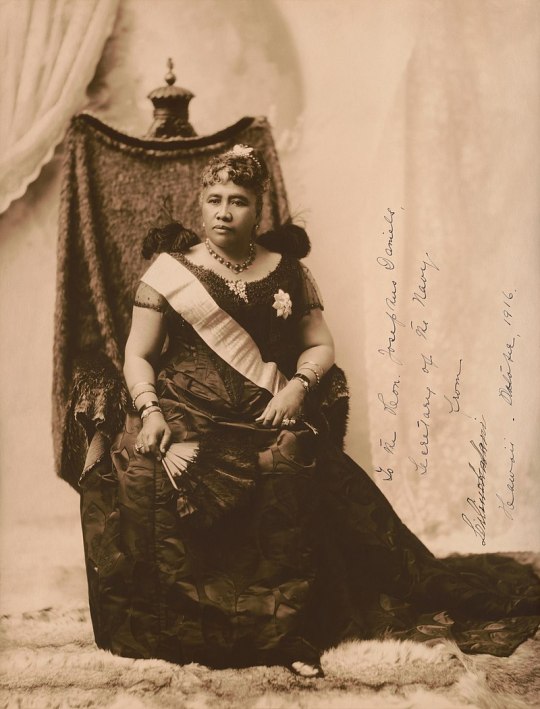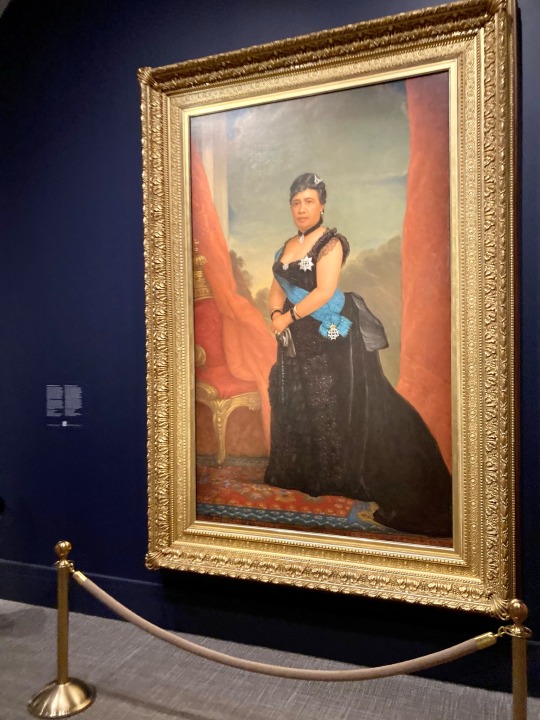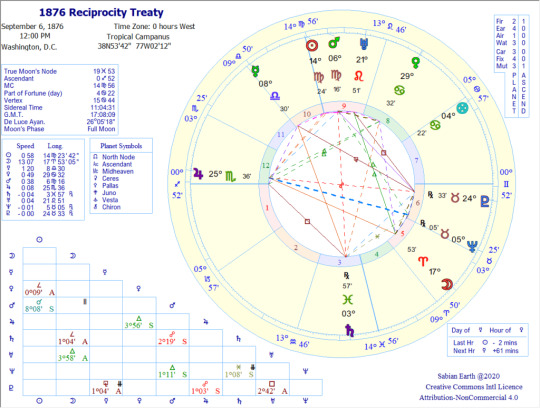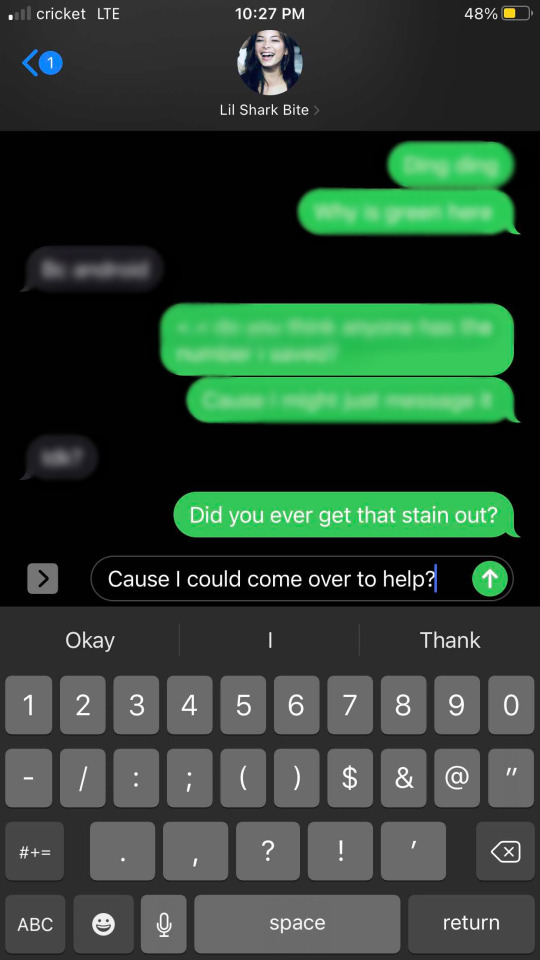#queen liliuokalani
Explore tagged Tumblr posts
Text
By the way if you are pro-Palestine but not pro-Hawaiian Sovereignty are you really pro-Palestine? Or are you just saying it because it’s trendy?
Know your morals. Understand the situation. Learn what you are fighting for and then keep fighting for it.
#free gaza#free palestine#palestine#gaza#gaza strip#gaza genocide#gazaunderattack#eyes on rafah#all eyes on rafah#fuck israel#fuck america#hawaii#hawaiian kingdom#hawaiian culture#Hawaiian sovereignty#Queen Liliuokalani#free hawaii#hawaii annexation
38 notes
·
View notes
Photo

Queen Lydia Lili’uokalani (Kaʻiulani's aunt)
Kaʻiulani's aunt was the last reigning monarch of Hawaii. Queen Lydia Liliʻu Loloku Walania Kamakaʻeha ruled from January 29, 1891, until the overthrow of the Hawaiian Kingdom by a coalition of American businessmen, led by Sanford Dole, on January 17, 1893. The composer of "Aloha ʻOe" and numerous other works, she wrote her autobiography Hawaiʻi's Story by Hawaiʻi's Queen during her imprisonment following the coup.
132 notes
·
View notes
Text
youtube
DID HAWAI`IʻS QUEEN ABDICATE OR NOT?
Some Say Yes & Some Say No.
But What About That Document She Signed?
It All Comes Down To What She Actually Did & Did Not Do.
Confused? Watch This As We Piece It All Together With The Answer.
#Free Hawaii TV#Free Hawaii Broadcasting Network#Ehu Kekahu Cardwell#Koani Foundation#Queen Liliuokalani#IllegalOverthrow#Youtube
4 notes
·
View notes
Text

#Queen Liliuokalani#Kingdom of Hawaii#Native Hawaii#Native Hawaiian#history#portrait#National Portrait Gallery#Smithsonian#Washington DC
2 notes
·
View notes
Text
June 1900 Hawaii becomes a territory
Dole, Cleveland and Hawaii On July 6, 1898 the Republic of Hawaii was annexed to the U.S. after Congress passed the Newlands Resolution, the culmination of nearly thirty years effort to bridge the two. The Sugar Fix Hawaii’s importance increased with the aftermath of the Civil War and the concurrent rise in sugar prices. In the United States sugar had always been supplied by the southern…

View On WordPress
#Great American Eclipse#Hawaii Annexation#June Event#Queen Liliuokalani#Reciporcity Treaty Of 1876#Sanford Dole#Search For Sugar
0 notes
Note
☎️
You In Billy's Phone? :: Accepting


#::: { asks } so does this mean ann margret's not coming?#Her ringtone: Aloha 'Oe - Queen Liliuokalani#brooklynislandgirl#::: { VERSES } As Deep As The Bluest Sea
1 note
·
View note
Text

Mary Elizabeth Mikahala Robinson Foster (1844-1930) was the daughter of a shipwrecked sailor, John James Robinson and Rebecca Prever, daughter of Kamakana, a Maui chiefess. She was sister of Mark P. Robinson, who served as Queen Liliuokalani's Minister of Foreign Affairs. She married Thomas R. Foster, the owner of a shipyard, a shipping agency and a number of schooners.
#historical fashion#Mary Elizabeth Mikahala Robinson Foster#1860s#19th century#victorian#maui#Kamakana
31 notes
·
View notes
Text
In the late 18th century, [...] Lahaina carried such an abundance of water that early explorers reportedly anointed it “Venice of the Pacific”. A glut of natural wetlands nourished breadfruit trees, extensive taro terraces and fishponds that sustained wildlife and generations of Native Hawaiian families.
But more than a century and a half of plantation agriculture, driven by American and European colonists, have depleted Lahaina’s streams and turned biodiverse food forests into tinderboxes. Today, Hawaii spends $3bn a year importing up to 90% of its food. This altered ecology, experts say, gave rise to the 8 August blaze that decimated the historic west Maui town and killed more than 111 people.
“The rise of plantation capital spawned the drying of the west side of Maui,” said Kamana Beamer, a historian and a former member of the Hawaii commission on water resource management [...].
---
[S]ugar and pineapple white magnates began arriving on the islands in the early 1800s. For much of the next two centuries, Maui-based plantation owners like Alexander & Baldwin and Maui Land & Pineapple Company reaped enormous fortunes, uprooting native trees and extracting billions of gallons of water from streams to grow their thirsty crops. (Annual sugar cane production averaged 1m tons until the mid-1980s; a pound of sugar requires 2,000lb of freshwater to produce.)
Invasive plants that were introduced as livestock forage, like guinea grass, now cover a quarter of Hawaii’s surface area. The extensive use of pesticides on Maui’s pineapple fields poisoned nearby water wells. The dawn of large-scale agriculture dramatically changed land practices in Maui, where natural resources no longer served as a mode of food production or a habitat for birds but a means of generating fast cash, said Lucienne de Naie, an east Maui historian [...].
“The land was turned from this fertile plain – with these big healthy trees, wetland taros and dryland crops like banana and breadfruit – to a mass of monoculture: to rows and rows of sugar cane, and rows and rows of pineapple,” she said.
---
The Great Māhele of 1848, a ground-breaking law that legitimized private land ownership, laid the ground for big developers to hoard water for profit, said Jonathan Likeke Scheuer, a water policy consultant and co-author of the book Water and Power in West Maui. [...] [T]he creation of private property allowed agricultural corporations to wield “political and ultimately oligarchic power” over elected officials. In 1893, a group of sugar magnates and capitalists overthrew the Hawaiian Kingdom’s Queen Liliuokalani, paving the way for the US to annex Hawaii five years later. Sanford Ballard Dole, a cousin of Dole Plantation’s founder, served as the first governor of Hawaii.
When the last of the sugar companies closed in 2016 [...], Scheuer said, the farms were purchased by large investors for real estate speculation and left fallow, overrun with invasive grasses that became fuel for brush fires. Developers [...] took control of the plantations’ century-old irrigation ditches and diverted water to service its luxury subdivisions. In doing so, it left scraps for Indigenous families who lived downstream. [...] [O]n Maui, 16 of the top 20 water users are resorts, time-shares and short-term condominium rentals equipped with emerald golf courses and glittering pools [...].
---
Text by: Claire Wang. "How 19th-century pineapple plantations turned Maui into a tinderbox". The Guardian. 27 August 2023. [Bold emphasis and some paragraph breaks/contractions added by me.]
270 notes
·
View notes
Note
What are some basic things to know about the Hawaiian government, back when it was still ran by Queens and such?
I assume it’s different than say, European royalty, but I’m struggling on how to find information for the government structures and what important roles are in the government
There's a great biography Queen Liliuokalani: The Hawaiian Kingdom's Last Monarch by Kale Makana which might be super helpful to you.
20 notes
·
View notes
Text






Royal Birthdays for today, September 2nd:
Marie Josephine of Savoy, Comtesse de Provence, 1753
Louis Bonaparte, King of Holland, 1778
Liliuokalani, Queen of Hawaii, 1838
Louise of Austria, Crown Princess of Saxony, 1870
Elisabeth Marie, Austrian Archduchess, 1883
Miriam, Crown Princess of Bulgaria, 1963
#marie josephine of savoy#louis bonaparte#liliuokalani#elisabeth marie of austria#crown princess miriam#louise of austria#long live the queue#royal birthdays
8 notes
·
View notes
Text

Calotropis gigantea, aka Crown Flower is used all across South East Asia for a multitude of purposes ,, pillow stuffing, making bow strings and even poison tipping arrows. They were favored by the Hawaiian Queen Liliuokalani, who considered them a symbol of royalty and wore them strung into leis. [Calotropis gigantea - Wikipedia] The photo was taken with an iPhone X R, from about 6" from the flower with flash-fill. [Flash switched on.] No other enhancements or techy anything were deployed.
3 notes
·
View notes
Text
Jojolands 22: On a Boat

Great place to start off honestly. After ripping on the car and all of it's battle damage we decide to take a moment to feel up Charmingman. Dragona can't resist either. Gives him a chance to opine on the condition a bit. I know enough to know it's likely a connection but having not yet finished Part 8 someone else will have to ponder the connection to the Rock Humans. Still, seems like Charmingman has one.

Anyways, on to the main thrust of the chapter. What a panel! We're enacting the plan to try an finesse the land away from Howler. Charmingman is disguising himself as the guy from the bank and we get a great new business suit for Pink-Chan while Jodio's just going as his ruffian self.
Right as we get there though the kids get a mass text about...a report on Queen Liliuokalani? Important figure in Hawaiian history to be sure, excellent name drop but seems to be an odd distraction.

Oh! Right...Meryl Mei is also the principal of the school. And she's currently getting shaken down by two of the new goons in Howler's employ. They're trying to pump her for info on Paco and she's not giving it up easily. Very tense scenario though given how quick they got to Meryl. I may think she's shadier than she's letting on but we probably wouldn't see that yet. The kids are still too useful to her.
Either way, I do like seeing Meryl tested. Especially with a stand power coming out. Reminds me a lot of Gladius from One Piece making things bubble and pop. Does Meryl have any defense against a Stand? Nothing we've seen of her implies an ability of her own and you need to have a Stand to fight a Stand.

Paco's made his choice though. He's gonna book it back and try to head them off, we don't know yet if Usagi will follow which could really set the tone of what happens when Paco gets there. If he even can in time. It also leaves the gang on the boat more at risk, though from the looks of it they have the more favorable setup of a 3-on-1 battle. 3-on-2 if Howler himself has some kind of Stand power but you never really know if it's a fair fight until you see the abilities.
This has really shaped up into something intriguing! Can't wait to see how it unfolds.
5 notes
·
View notes
Text
Crown Prince of Hawaii
Prince Leleiohoku 1855-1877, Crown Prince of the Hawaiian Islands.

Do you want to learn how Hawaii became a USA state? Do you want to know how Dole became a ubiquitous pineapple brand? If so you have to know all of the events that led to that tainted hostile takeover.
Liliuokalani (born September 2, 1838, Honolulu, Hawaii [U.S.]—died November 11, 1917, Honolulu) was the first and only reigning Hawaiian queen and the last Hawaiian sovereign to govern the islands, which were annexed by the United States in 1898.
Also known as: Liliu Kamakaeha, Lydia Kamakaeha, Lydia Liliuokalani Paki
Liliuokalani regretted the loss of power the monarchy had suffered under Kalakaua and tried to restore something of the traditional autocracy to the Hawaiian throne. She had earlier made her position clear by opposing the renewed Reciprocity Treaty of 1887, signed by Kalakaua, granting privileged commercial concessions to the United States and ceding to them the port of Pearl Harbor. This attitude forever alienated her from Hawaii’s haole—foreign businessmen—who, after her accession, tried to abrogate her authority.
Liliuokalani Queen Liliuokalani was the last monarch of Hawaii.
Also known as: Liliu Kamakaeha, Lydia Kamakaeha, Lydia Liliuokalani Paki
Sanford Ballard Dole (born April 23, 1844, Honolulu, Hawaiian Islands [U.S.]—died June 9, 1926, Honolulu) was the first president of the Republic of Hawaii (1894–1900), and first governor of the Territory of Hawaii (1900–03) after it was annexed by the United States.
#hawaii#war against indigenous people#vital information exchange#vital community#vitalportal#thevitalportal#additional information#vital media#blacklivesmatter#vital politics#blacktwitter#myvitaltv
2 notes
·
View notes
Text
WHAT WILL YOU DO?

3 notes
·
View notes
Text
June 1900 Hawaii becomes a territory
Dole, Cleveland and Hawaii On July 6, 1898 the Republic of Hawaii was annexed to the U.S. after Congress passed the Newlands Resolution, the culmination of nearly thirty years effort to bridge the two. The Sugar Fix Hawaii’s importance increased with the aftermath of the Civil War and the concurrent rise in sugar prices. In the United States sugar had always been supplied by the southern…

View On WordPress
#Great American Eclipse#Hawaii Annexation#June Event#Queen Liliuokalani#Reciporcity Treaty Of 1876#Sanford Dole#Search For Sugar
0 notes
